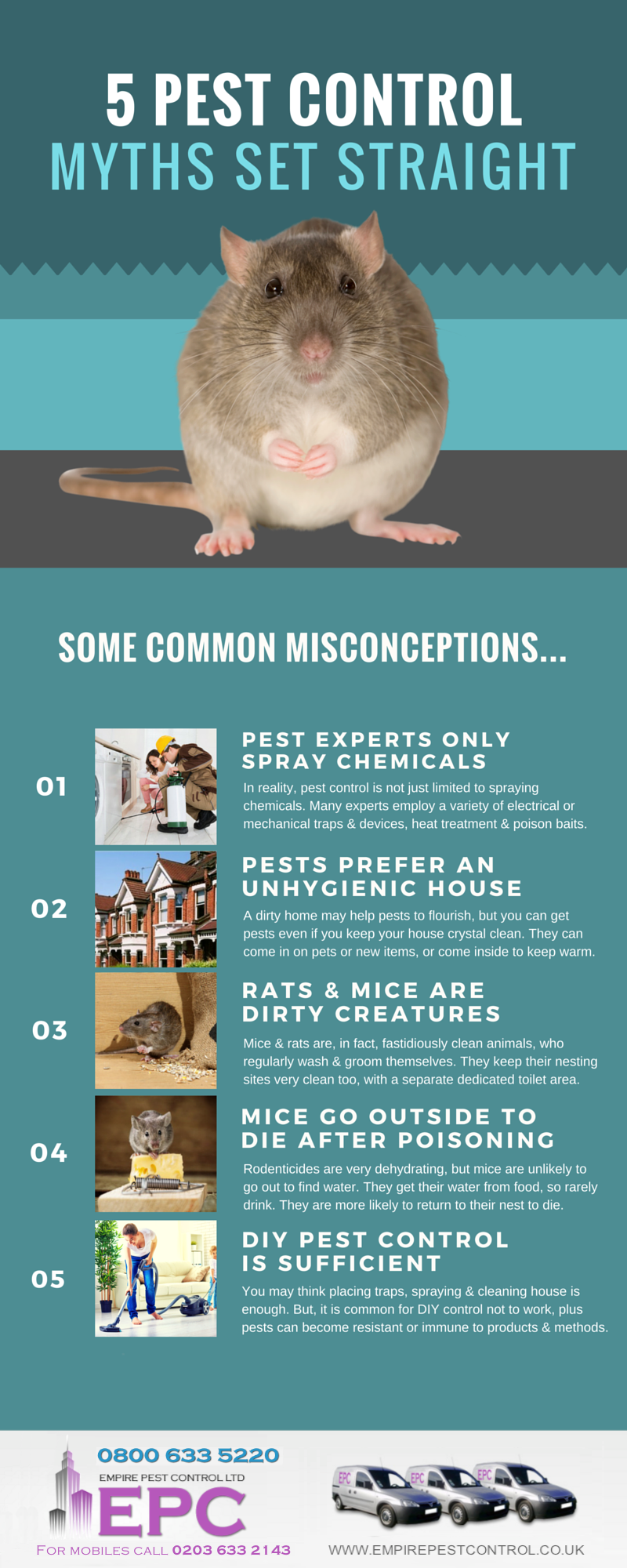Securing Your Garden From Vermins: Approaches For A Pest-Free Outdoor Area
Securing Your Garden From Vermins: Approaches For A Pest-Free Outdoor Area
Blog Article
Web Content Created By-Lauritsen Espersen
Picture your garden as a haven, a location of peace and elegance. However, the visibility of exterior parasites can promptly interrupt this picturesque photo. Suppose there were basic yet reliable ways to maintain these undesirable site visitors away and safeguard your yard oasis? By adhering to a few functional suggestions and applying all-natural techniques, you can create an unified exterior area where your plants can flourish undisturbed.
Natural Parasite Deterrents
To keep insects away from your yard normally, plant aromatic natural herbs like mint and lavender. These fragrant plants not just add beauty to your yard yet likewise work as reliable pest deterrents. Bugs like mosquitoes, flies, and even some garden-damaging bugs are warded off by the solid fragrances emitted by these herbs. Merely placing them tactically around your yard can help create a natural obstacle versus unwanted parasites.
In addition to mint and lavender, think about growing various other natural herbs like rosemary, basil, and lemongrass to additionally improve your garden's pest-proofing abilities. https://www.qualityassurancemag.com/news/tips-for-prevention-of-light-invading-insects/ work as all-natural repellents however likewise have the added benefit of serving in food preparation or crafting self-made treatments.
Strategic Plant Placement
Consider the design of your yard and the kinds of plants you need to strategically put them for maximum pest-proofing effectiveness.
Beginning by organizing plants with comparable resistance to insects with each other. By doing this, you can produce a natural obstacle that prevents parasites from spreading out throughout your yard.
In addition, positioning pest-repelling plants like marigolds, lavender, or mint near even more vulnerable plants can assist secure them. Tall plants, such as sunflowers or corn, can serve as a guard for much shorter plants against insects like bunnies or ground-dwelling insects.
Bear in mind to leave adequate room between plants to boost air circulation and lower the risk of illness that pests may bring.
Furthermore, think about growing strong-smelling natural herbs like rosemary or basil near susceptible plants to puzzle pests' detects and make it harder for them to find their targets.
Effective Bug Control Techniques
For combating garden parasites properly, executing a multi-faceted bug control technique is important. Begin by encouraging all-natural predators like birds, ladybugs, and praying mantises to help keep insect populaces in check. Introducing plants that attract these useful insects can aid in pest control. Furthermore, practicing great garden hygiene by getting rid of debris and weeds where insects may conceal can make your garden less friendly to undesirable site visitors.
Think about making spider treatment for home of physical obstacles such as row cover fabrics or netting to safeguard at risk plants from parasites like caterpillars and birds. Using organic pesticides like neem oil or insecticidal soap can also be effective against particular pests while being less hazardous to advantageous insects and the setting. It's crucial to rotate your plants each season to prevent the build-up of pest populaces that target particular plants.
Regularly check your plants for indications of bug damages so you can do something about it without delay. By incorporating these approaches and remaining vigilant, you can successfully control yard parasites and enjoy a successful, pest-free yard.
Conclusion
So, there you have it - with the ideal methods, you can keep pesky outdoor insects far from your garden and help your plants flourish.
Did you know that planting mint has been revealed to ward off insects and other bugs, decreasing the demand for harmful chemicals by up to 60%?
By integrating all-natural deterrents and wise growing strategies, you can produce an attractive and pest-resistant yard sanctuary for you to delight in.
